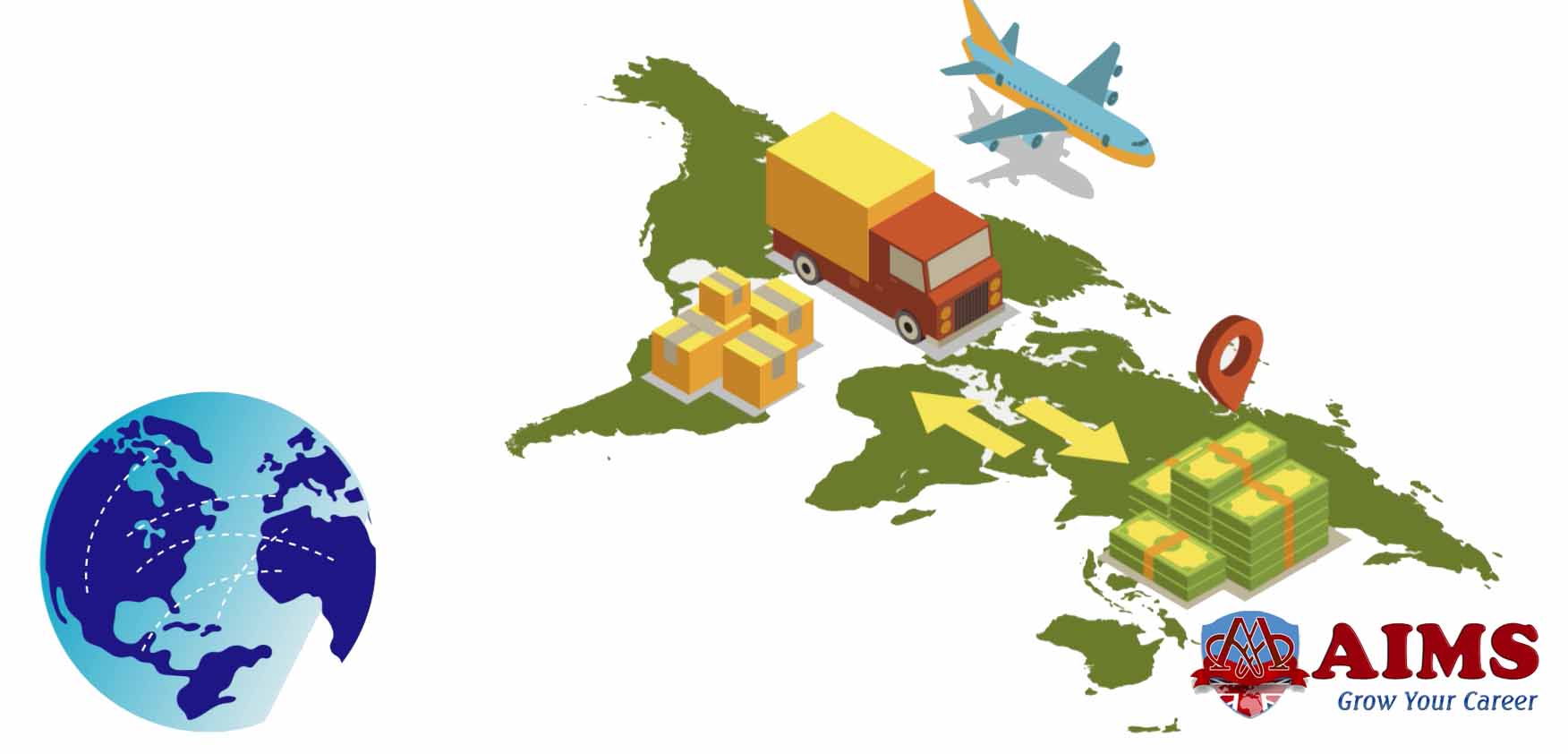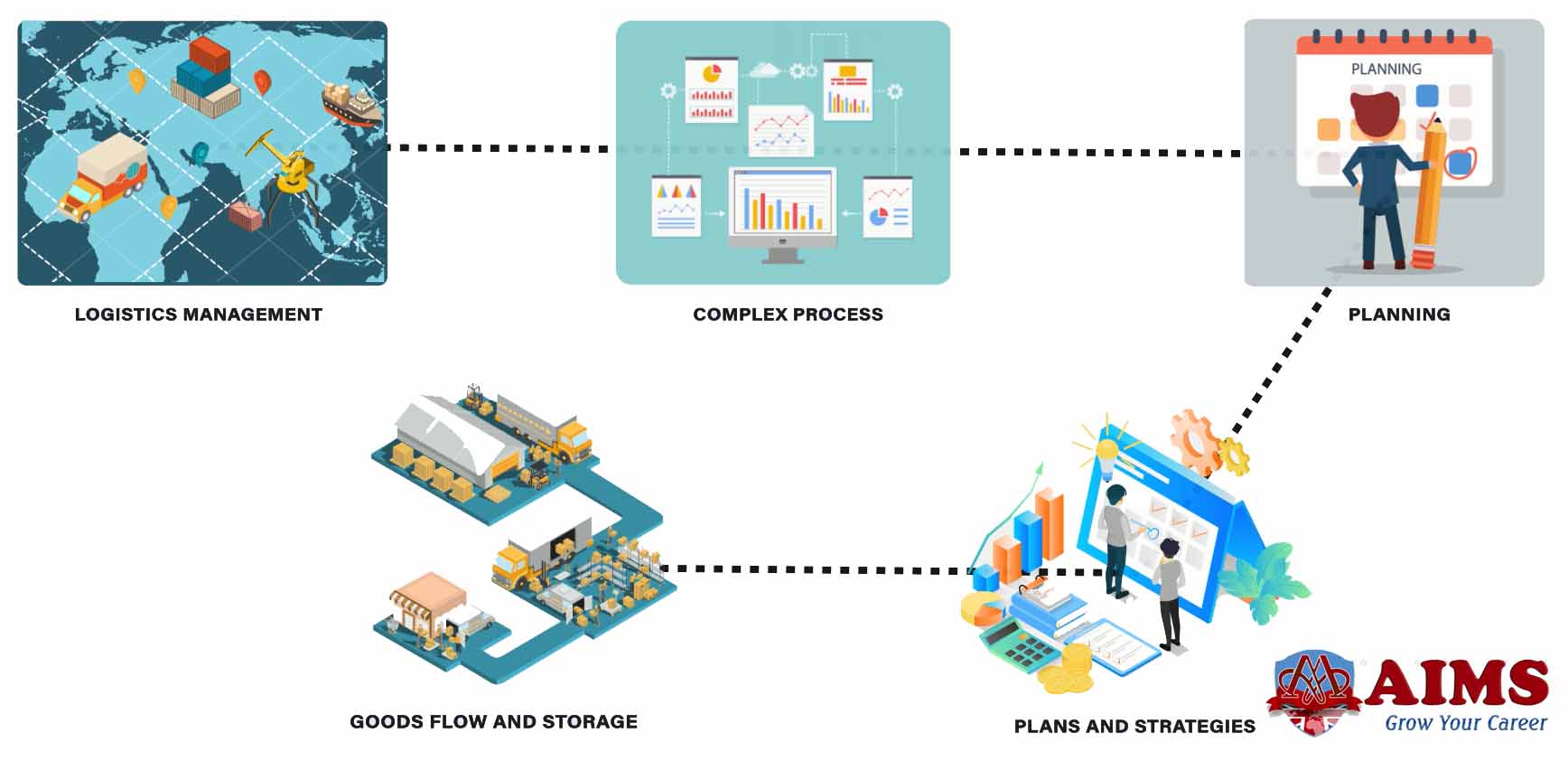What is International Supply Chain Management?
International supply chain management refers to the management or control of both physical and information flow concerning a wide variety of goods, tracking them from the point of their origin until they reach the destination. International SCM is done with the help of a number of tools, which provide support when it comes to planning and implementing the set plans for the efficient flow of the supply chain.

International Supply Chain Definition
International Supply Chain definition is similar to the definition of supply chain management, which is the management of the flow involving goods or services, represented by transportation and storage, inventory and shipping schedules, beginning with the acquisition of raw materials to providing the final product to the end consumer. In the case of International supply chain management, this flow assumes the involvement of at least one company from abroad, with the purpose of creating a network composed of transnational companies.
Difference Between International Logistics and Supply Chain Management
Unlike international supply chain management, international logistics management is a complex process that involves planning, implementing plans and strategies, and controlling goods flow and storage, from the point of their origin to the point where they will be consumed, which is in a different country, according to logistics management overview.

International Supply Chain Management in the Modern Markets
The globalization phenomenon erased a lot of borders when it comes to moving goods, materials, and services around the world.
- Today, anyone can purchase goods that come from countries they never saw before, which may be at the other end of the globe, without a problem.
- Also, companies can outsource a wide variety of tasks to companies across the seas and get their primary materials for the manufacturing of their products from suppliers that are not from their home country.
“Having all these aspects in mind, it is easy to understand that the demand for international supply chain management increased in a considerable manner in the past years. This particular trend is not about to stop, as end customers are learning that geographical borders are inexistent when it comes to getting the products they need.”
Key Note!
5 Key Strategies for International Supply Chain Management
- The optimization of inventory, making sure that ideal amounts are available at all times;
- Flexibility, as the supply chain is capable of adapting to changes in the market and other factors that may influence it;
- Fast fulfilment of customer needs, which became more and more important as people around the world prefer using their mobile devices as a faster way to find and get what they need;
- Customization, which means that the supply chain will be adjusted so that it will be capable of meeting the demands of the clients;
- Sustainability, a trend that is becoming increasingly prominent in the International Supply Chain Management, having in mind that fossil fuels are a finite good and they have to be used in a smart manner while considering the use of renewable fuels.
Impact of International Supply Chain Management on Businesses
International Business has a lot of gain from International Supply Chain Management because it stimulates the growth of various economies:
- It helps in the improvement of standards of living,
- It helps with the creation of new jobs, it answers to the needs of people, and
- It improves customer service.
All of these aspects grow and improve together with the development of local markets, which are boosted by International Supply Chain Management.
Operational Issues with International Supply Chain
The International Supply Chain is not a perfect entity and issues can always emerge, and several methods are used such as agile supply chain and lean supply chain. The most frequently meet operational issues can appear in sectors like inventory, transportation, sourcing, marketing, green supply chain management, green logistics (which aims to protect the environment and reduce consumption connected to logistics), and the in the operations connected to consumers’ behavior. International supply chain management is a part of MBA supply chain management and diploma in logistics and supply chain management programs, which are offered by AIMS – the best online supply chain management institute.

5 Stages in International Supply Chain Management
Stage 1: Procurement Management
- Supplier Selection: The first stage in your international supply chain management process is to select reliable suppliers. The selection of suppliers should be based on four factors: Cost, Quality, Reliability, and Capacity.
- Contract Negotiation: The procurement manager must ensure that you have agreed on the right terms and conditions with suppliers and that they offer you good pricing and delivery schedules.
- Supplier Relationship Management is a key component of international supply chain management. It helps maintain consistent communication and collaboration and leads to reliable and quality products and services.
Stage 2: Production
- Manufacturing Planning: You should develop schedules that help optimize production runs and minimize production downtime.
- Quality Control: Implement measures that ensure products meet your defined quality standards before moving through the supply chain.
- Inventory Management: You should maintain balanced inventory levels that meet demands without any overproduction or understocking.
Stage 3: Transportation
- Logistics Planning: You should design and streamline your international logistics network, from suppliers to manufacturing plants and distribution centers, for your international supply chain management.
- Freight Management: Choose a cost-effective logistics network. You may choose from several modes, such as trucking, air freight, and sea transportation, whatever suits your requirements and objectives.
- Customs Brokerage: Ensure that you comply with international trade regulations and streamline your clearance processes according to the government requirements.
Stage 4: Warehousing
- Storage Management: Choosing warehouses that provide more space, a more accessible location, and lower costs will increase the efficiency of your warehousing.
- Order Fulfillment: For better customer satisfaction, use supply chain management software that may process incoming orders swiftly.
- Inventory Tracking: For better international supply chain management, use technology that may provide you with real-time inventory data.
Stage 5: Distribution
- Network Design: Supply chain network design helps you strategically position distribution centers to optimize delivery costs and times.
- Returns Management: Finally, your international supply chain management should implement processes like reverse logistics to handle returned goods efficiently.

Key Benefits of International Supply Chain Management
1. International Reach
International supply chain management enables your businesses to access a vast network of suppliers, distributors, and markets across different countries. This allows you to source materials at competitive prices and sell your products in internatioal markets.
2. Cost Efficient
Leveraging regional advantages such as lower labor costs and raw material availability may reduce production and operational expenses.
3. Risk Diversification
Operating across multiple countries reduces your reliance on a single market or supplier. International supply chain management also reduces supply chain risks associated with geopolitical instability, natural disasters, or economic downturns.
4. Scalability
International supply chains provide your business with the flexibility to scale your supply chain management operations quickly to meet increased demand. This adaptability is crucial for maintaining competitive advantage in a dynamic global market.
5. Innovation
International supply chain management exposes you to different markets and cultures, allowing you to adopt new ideas and trends that may innovate your products and services.
6. Compliance and Standards
Efficient management of international supply chains ensures that your company and product/services comply with various international regulations and standards.
